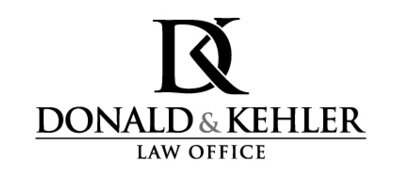Best Tax Increment Financing Lawyers in Brandon
Share your needs with us, get contacted by law firms.
Free. Takes 2 min.
List of the best lawyers in Brandon, Canada
About Tax Increment Financing Law in Brandon, Canada
Tax Increment Financing (TIF) in Brandon, Canada, is a public financing method used to subsidize redevelopment, infrastructure, and other community-improvement projects. It works by using the future increase in property tax revenues generated by the increase in property values to finance current improvements. This tool helps stimulate development in underdeveloped or blighted areas by attracting private sector investment and boosting economic growth without an immediate tax burden on taxpayers.
Why You May Need a Lawyer
Engaging a lawyer experienced in Tax Increment Financing can be crucial in various situations. These include understanding and navigating the complexities of TIF agreements, ensuring compliance with local and provincial regulations, negotiating the terms of TIF contracts, and resolving disputes related to TIF projects. A lawyer can also assist with strategizing the financial aspects of projects and ensuring that developments align with community goals and benefits.
Local Laws Overview
In Brandon, Tax Increment Financing is subject to specific local laws and regulations designed to promote fair and equitable development. Key aspects include the identification of TIF districts, determination of base and increment value assessments, and compliance with environmental and zoning regulations. Projects must align with the city’s development goals and must be vetted to ensure transparency and accountability. Local governing bodies oversee the approval and administration of TIF projects, ensuring that they contribute positively to the community.
Frequently Asked Questions
What is a TIF district?
A TIF district is a designated area within a city where Tax Increment Financing can be applied. It usually covers areas in need of rehabilitation or redevelopment to stimulate growth and attract private investment.
How is the tax increment determined?
The tax increment is calculated based on the increase in property tax revenues above a predefined base level, which is established before TIF implementation. This increment is then used to fund development projects.
Can TIF affect my property taxes?
TIF does not increase property taxes; it reallocates future tax revenues to finance improvement projects. Property owners within a TIF district continue to pay taxes based on the value of their property, with increments used for redevelopment.
Who oversees TIF projects in Brandon?
In Brandon, TIF projects are overseen by local government authorities, including city councils and redevelopment boards, ensuring compliance with regulations and alignment with municipal plans.
What types of projects can TIF funding be used for?
TIF funding can be used for various projects, such as public infrastructure improvements, environmental remediation, affordable housing developments, and community revitalization efforts.
What risks are associated with Tax Increment Financing?
Risks include potential shortfalls in projected tax revenue increments, misalignment of project goals with community needs, and challenges in managing the debt incurred upfront for improvements.
Is TIF right for my development project?
Determining whether TIF is appropriate for your project requires a detailed analysis of the project’s financial viability, its alignment with local development goals, and the expected impact on the community.
How long does a TIF district remain in effect?
The duration of a TIF district varies but typically lasts until the public investment is recouped or until a predetermined number of years have passed, often ranging from 10 to 30 years.
Are there any examples of successful TIF projects in Brandon?
Brandon has seen successful TIF projects that have revitalized parts of the city, attracting new businesses and fostering economic development within previously underdeveloped areas.
How do I start a TIF project?
To start a TIF project, you should consult with legal and financial experts to draft a proposal, then engage with local government officials to understand the regulatory requirements and approval process.
Additional Resources
The following resources may be helpful for those seeking more information on TIF in Brandon:
- City of Brandon Economic Development Department
- Manitoba Municipal Board
- Brandon Chamber of Commerce
- Legal firms specializing in real estate and municipal law
- Government publications on urban planning and development
Next Steps
If you require legal assistance with Tax Increment Financing, the first step is to consult with a lawyer who specializes in this field. You may start by contacting local law firms with a strong focus on real estate and municipal law. Additionally, reaching out to the city’s economic development department can provide valuable guidance on the local TIF process and available resources. Thorough preparation and expert advice can significantly enhance your prospects for a successful TIF project.
Lawzana helps you find the best lawyers and law firms in Brandon through a curated and pre-screened list of qualified legal professionals. Our platform offers rankings and detailed profiles of attorneys and law firms, allowing you to compare based on practice areas, including Tax Increment Financing, experience, and client feedback.
Each profile includes a description of the firm's areas of practice, client reviews, team members and partners, year of establishment, spoken languages, office locations, contact information, social media presence, and any published articles or resources. Most firms on our platform speak English and are experienced in both local and international legal matters.
Get a quote from top-rated law firms in Brandon, Canada — quickly, securely, and without unnecessary hassle.
Disclaimer:
The information provided on this page is for general informational purposes only and does not constitute legal advice. While we strive to ensure the accuracy and relevance of the content, legal information may change over time, and interpretations of the law can vary. You should always consult with a qualified legal professional for advice specific to your situation.
We disclaim all liability for actions taken or not taken based on the content of this page. If you believe any information is incorrect or outdated, please contact us, and we will review and update it where appropriate.










